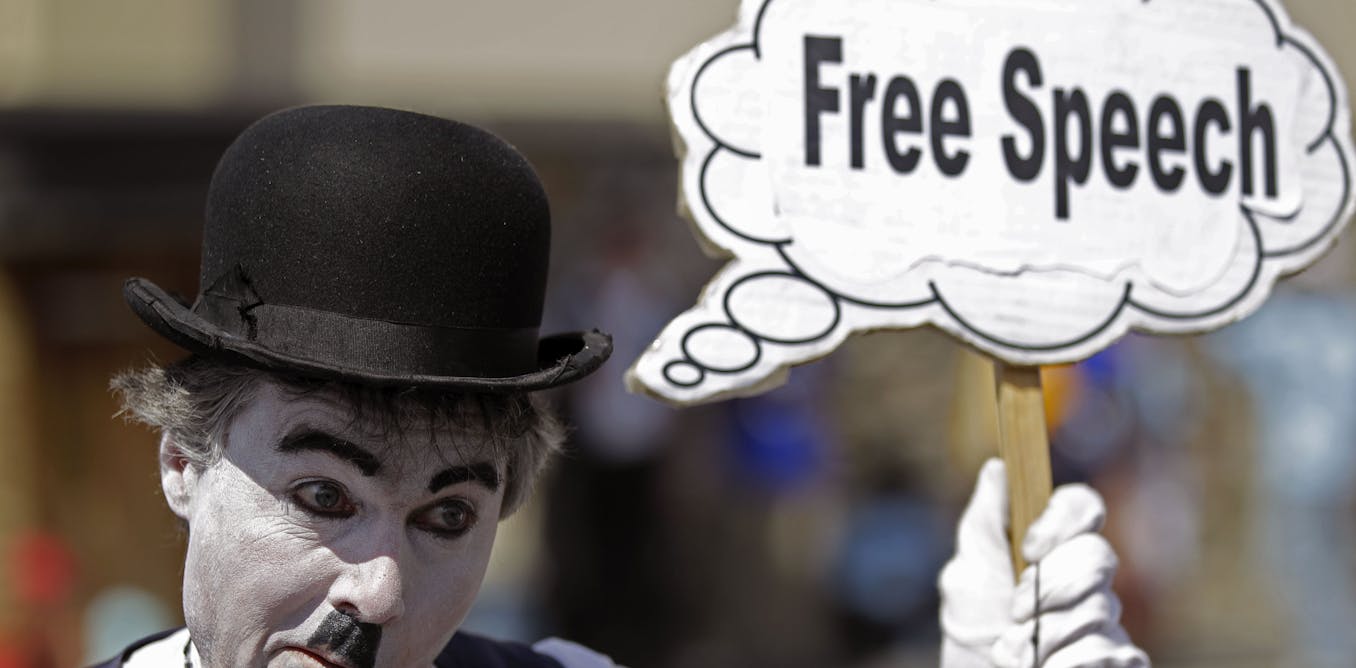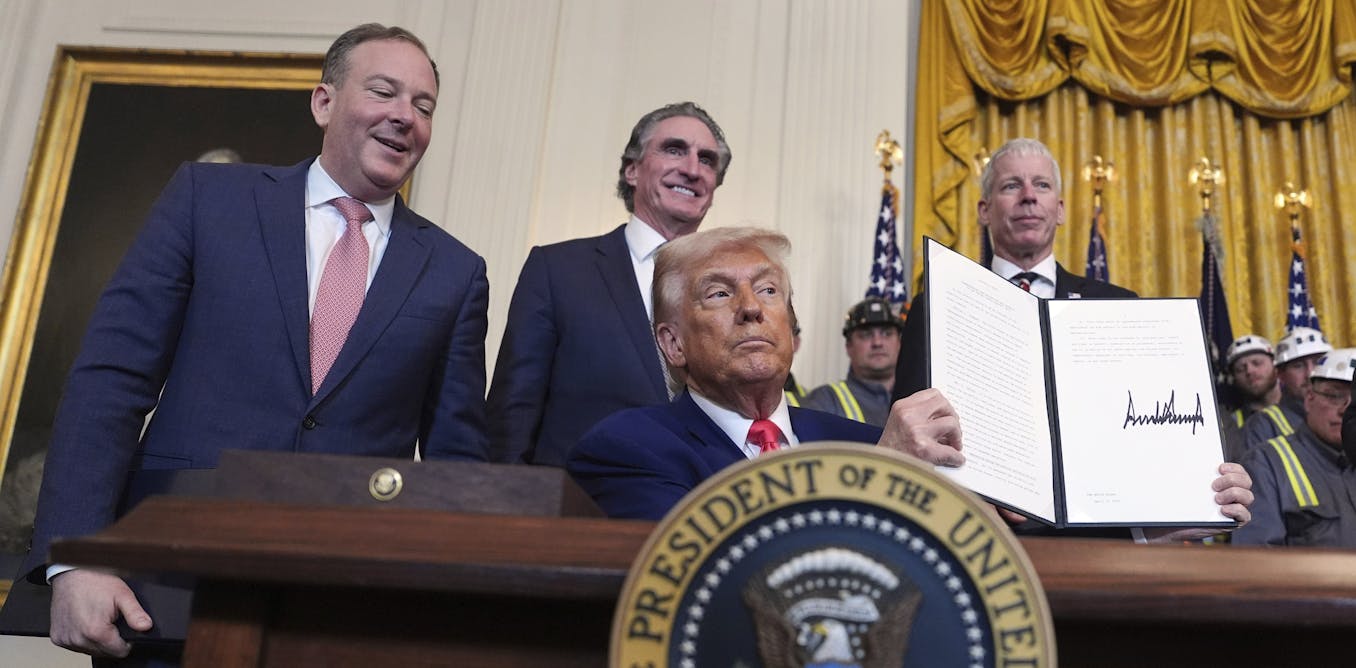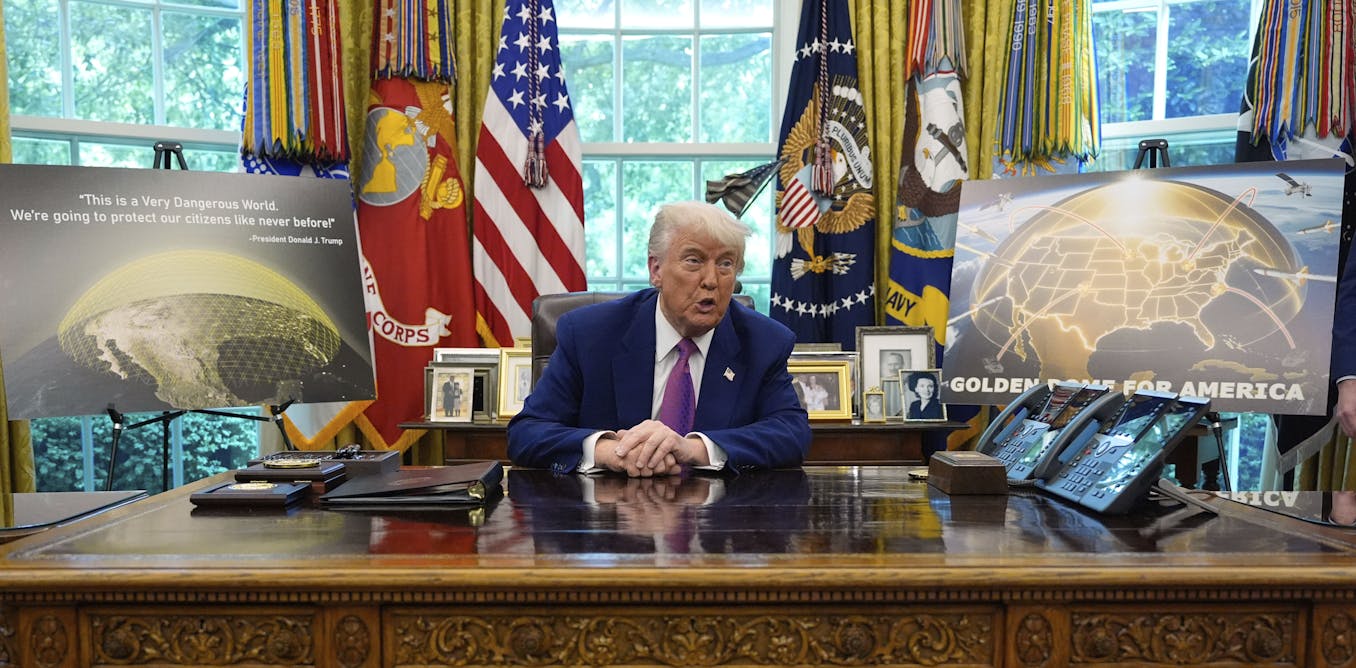One of the first executive orders that President Trump signed after his inauguration on Jan. 20, 2025, was titled Restoring Freedom of Speech and Ending Federal Censorship. The order accused the previous administration of having “trampled free speech rights by censoring Americans’ speech on online platforms.”
What Trump was referring to as censorship was the government’s attempt to work with social media and broadcasting platforms to regulate misinformation, disinformation and misleading information by removing content, limiting its dissemination or labeling it, sometimes with fact-checking included. Similar accusations had been brought before the Supreme Court in 2024, where the justices sided with the federal government, preserving its ability to interact and coordinate with social media platforms.
However, the decision came during a trend toward deregulation of online platforms as Elon Musk removed guardrails after acquiring X, and Meta and YouTube removed policies meant to combat hate and misinformation. With Trump’s commitment to free speech protections through deregulation, online platforms are likely to remove more guardrails.
As a scholar of legal and political philosophy, I know that deregulation and free speech are often linked. Recently there has been a significant increase in broad court rulings on the First Amendment that support deregulation in all sorts of market sectors, from contributions to political campaigns to graphic labels on cigarettes.
This is not surprising considering that free speech has long been associated with the metaphor of free trade in ideas, closely tied to the value of a deregulated market economy. The presumption has been that the way to protect freedom of speech is through a deregulated marketplace, and speech on social media platforms is no exception. However, research on online speech shows the opposite to be the case: Regulating online speech protects free speech.
Free speech and its exceptions
Free speech in the U.S. has always been accompanied by a series of exceptions, laid out clearly by the courts, that constrain speech based on a competing concern for the prevention of harm. For example, speech that threatens, incites or directly causes harm is not protected speech.
Yet, when it comes to content-based regulation dealing with ideas or ideological expression, the courts have been clear that the government should not place burdens on speech that is objectionable. The government cannot censor speech that is false but does not lead to a specific, identifiable harm.
Despite these legal constraints, researchers have suggested that upholding the value of free speech requires some content-based regulation. To understand this seemingly paradoxical conclusion, it’s important to understand why free speech is valuable in the first place. Free speech enables you to be an autonomous member of society by allowing you to express yourself and hear other people express themselves.
People consider it wrong when a government bans discussion of a viewpoint or piece of content because that violates their right as speakers and listeners to engage with the viewpoint or content. In other words, having free speech is essential because citizens need to be able to choose freely what they say and listen to.
In addition, democracy is served by having a citizenry that is able to engage freely and meaningfully in the content of their choosing. Democratic dissent, after all, was the original inspiration for free speech protections and serves as the backbone of their protections today.
Regulating for free speech
The need for citizens in a democratic state to be autonomous speakers and thinkers underscores the importance of content-based regulation in upholding free speech. Research has shown that hate speech online in particular and the proliferation of extremism online in general have a chilling effect on online speech through intimidation and fear. So, restrictions on hate speech can support free speech rather than undermining it.
Creative Touch Imaging Ltd./NurPhoto via Getty Images
In addition, the spread of online misinformation and the challenges of detecting it can similarly undermine the people’s ability to exchange ideas and evaluate viewpoints as autonomous speakers or listeners. In fact, research shows that users are bad at distinguishing between true and false claims online. This fundamental weakness undermines your ability to operate as an autonomous speaker or listener.
Finally, increased polarization online, caused by the dissemination of falsehoods, undermines the democratic point of free speech protections. People cannot meaningfully engage in the marketplace of ideas on a platform where falsehoods are amplified. Importantly, this insight aligns with users’ preference that platforms remove disinformation rather than protect it.
All of this is evidence that deregulating social media platforms is a net loss for free speech. In economic markets, maintaining a consumer’s freedom of choice requires regulations against coercion and deceit. In the marketplace of ideas, the principle is the same: The free trade of ideas requires regulation.




